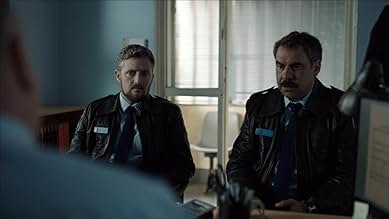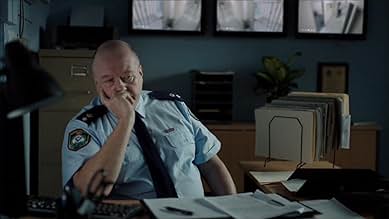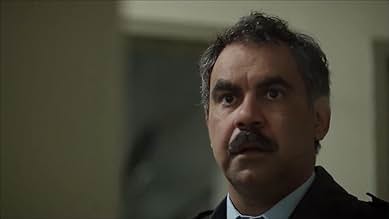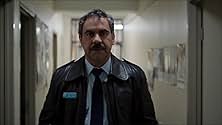The troubled lives of struggling indigenous Australians in the tough, rundown neighborhood of the inner suburb of Redfern in Sydney.The troubled lives of struggling indigenous Australians in the tough, rundown neighborhood of the inner suburb of Redfern in Sydney.The troubled lives of struggling indigenous Australians in the tough, rundown neighborhood of the inner suburb of Redfern in Sydney.
- Awards
- 16 wins & 16 nominations total
Browse episodes
Featured reviews
Maybe one has to be Australian to like this series. But not for anyone who has experienced well executed drama. Having ploughed through 6 of the episodes picked from both series 1 and 2 we won't be watching any more. The basic messages are clearly well intentioned but the dialogue is simple and the scenes so repetitive we kept shouting "OK we've got the message".
The characters have little depth and the endings are mostly predictable after about 10 minutes. If this is the kind of drama that wins awards in Australia, then it is no wonder why the rest of the world views that part of the world as lacking culture. (Just as well the Sydney Opera house can counter that.)
The underlying story is generally good but just doesn't justify 50 minute episodes. Now weave several episodes together giving each story maybe 20 minutes air time and there just could be an interesting poignant mini series.
The characters have little depth and the endings are mostly predictable after about 10 minutes. If this is the kind of drama that wins awards in Australia, then it is no wonder why the rest of the world views that part of the world as lacking culture. (Just as well the Sydney Opera house can counter that.)
The underlying story is generally good but just doesn't justify 50 minute episodes. Now weave several episodes together giving each story maybe 20 minutes air time and there just could be an interesting poignant mini series.
This series is refreshingly different to all the formulaic cop shows/hospital dramas/sitcoms which dominate the TV landscape. The episodes deal with everyday issues in a realistic fashion; we are privileged to see some of Australia's best actors at work; and indigenous people are portrayed non-stereotypically. Not all the story lines are resolved neatly - just like real life, things sometimes turn out other than we would wish. Each episode is self-contained, but many characters appear in several eps with differing degrees of prominence, so someone who features in one episode as the protagonist may pop up later in a supporting role. If you like intelligent, thoughtful and thought-provoking drama, and you are an open-minded discerning viewer, I think you will find Redfern Now a rewarding experience.
For me, this film brings to consciousness and display why people seek to be individuals. One might call it "walking your talk", Or, not taking a passive voice.
The film's theme takes on an active voice as we watch the words and behaviors of the young student and his support groups. IE, being black means "having sufficient character and self-esteem" not to sing the National Anthem.
Both groups point out ...well, it is only a song.
But, to the young black student, singing it, equals subjectification. A big word for meaning ... being less than someone or something else.
Philosophically, is this not the definition of "individual" and having your own voice.
At first look, it was dispiriting to witness the passive voices of the school's "aboriginal liaison" and the white male who is also part of the governing board. Yet, in a subtle manner, this is a realistic view of our societie4s.
More passive voices
And riding right beneath the main topic is ...what and how are we teaching our youth. To just follow the crowd or to think through life and societal issues?
For me, the film invites, even guides, me to examine the definitive question = what am I willing to stand up for even in the face of alienation and expulsion. How do I teach my kids and grand kids to be "real?"
How about you?
The film's theme takes on an active voice as we watch the words and behaviors of the young student and his support groups. IE, being black means "having sufficient character and self-esteem" not to sing the National Anthem.
Both groups point out ...well, it is only a song.
But, to the young black student, singing it, equals subjectification. A big word for meaning ... being less than someone or something else.
Philosophically, is this not the definition of "individual" and having your own voice.
At first look, it was dispiriting to witness the passive voices of the school's "aboriginal liaison" and the white male who is also part of the governing board. Yet, in a subtle manner, this is a realistic view of our societie4s.
More passive voices
And riding right beneath the main topic is ...what and how are we teaching our youth. To just follow the crowd or to think through life and societal issues?
For me, the film invites, even guides, me to examine the definitive question = what am I willing to stand up for even in the face of alienation and expulsion. How do I teach my kids and grand kids to be "real?"
How about you?
Badlandz didn't know what he was talking about. If he knew it's actually worse because oh yea we need another American to comment on the intricate and complicated societal Australian problems that were brilliantly reflected and acted in the series. I love the dialog, the emotional weight between the silences, the pauses, which is distinctly Australian; while some might prefer a 50 min drama filled with clever non- clichéd witty dialogue with Tom-Cruise-facial-contortion-style of acting, normally people don't act this way and I think it's the show's purpose to honestly and realistically portray the multi-facets of contemporary Aboriginal lives in Australia.
This is a really poignant TV drama series that captures the reality of class, race, culture, identity, and attitude. What i find most compelling is that it is a window into the possible lives of people that face struggle every day because of prejudice, racism, poverty; it breaks down the stereotypes that the typical Australian psyche has formed of Indigenous peoples and creates a beautiful web of recognition for every 'Australian'. I find that every episode (I've watched episodes 1-4 thus far) has made me empathetic, laugh, cry, smile, relate and admire the message that this Indigenous drama carries to the people.
I give it 9 *'s because it takes a stab at issues that seem to be ignored or rarely said in the television arena and it does it incredibly well.
Australia needs to wake up to its past and reform our future. Unfortunately racism is still alive and well; and sadly isn't going away, because people hold onto racist attitudes rather than questioning the past. Maybe this drama can begin something that starts to make people learn; to critically reflect and to think about more than what's on the surface like Australia's treatment of Aboriginal people, what of the reality of asylum seekers, or the ridiculous misconception of Muslim's perpetrated by the media, or the appalling struggle of refugees/Boat people who go through desperate measures that we conveniently ignore, or the changing government policies/History Wars which obfuscate change, let alone other facts of our past like the White Australia Policy and our nations history such as the disgusting aspects of Darwinism that Australia has abused for ethnic cleansing and Australia's abhorred policies of the past Indigenous atrocities that continue today with 3rd world conditions for today's Aboriginal Communities in remote areas and the Kimberly; these are reasons why Redfern Now provides something fresh and interesting. People need to be awoken from apathy and ignorance; Redfern Now provides a wonderful glimpse into re-thinking Indigenous perspectives, and should delight anyone's curiosity with it's down-to-earth reality of people, class, gender, and indigenous struggle against bias and naivety.
I give it 9 *'s because it takes a stab at issues that seem to be ignored or rarely said in the television arena and it does it incredibly well.
Australia needs to wake up to its past and reform our future. Unfortunately racism is still alive and well; and sadly isn't going away, because people hold onto racist attitudes rather than questioning the past. Maybe this drama can begin something that starts to make people learn; to critically reflect and to think about more than what's on the surface like Australia's treatment of Aboriginal people, what of the reality of asylum seekers, or the ridiculous misconception of Muslim's perpetrated by the media, or the appalling struggle of refugees/Boat people who go through desperate measures that we conveniently ignore, or the changing government policies/History Wars which obfuscate change, let alone other facts of our past like the White Australia Policy and our nations history such as the disgusting aspects of Darwinism that Australia has abused for ethnic cleansing and Australia's abhorred policies of the past Indigenous atrocities that continue today with 3rd world conditions for today's Aboriginal Communities in remote areas and the Kimberly; these are reasons why Redfern Now provides something fresh and interesting. People need to be awoken from apathy and ignorance; Redfern Now provides a wonderful glimpse into re-thinking Indigenous perspectives, and should delight anyone's curiosity with it's down-to-earth reality of people, class, gender, and indigenous struggle against bias and naivety.
Did you know
- TriviaDeborah Mailman was nominated for a 2015 Australian Academy of Cinema and Television Arts Award in the Best Lead Actress in a Television Drama category for her role as Lorraine in Redfern Now (2012).
- ConnectionsReferenced in The Making of Emu Runner (2018)
- How many seasons does Redfern Now have?Powered by Alexa
Details
Contribute to this page
Suggest an edit or add missing content




























